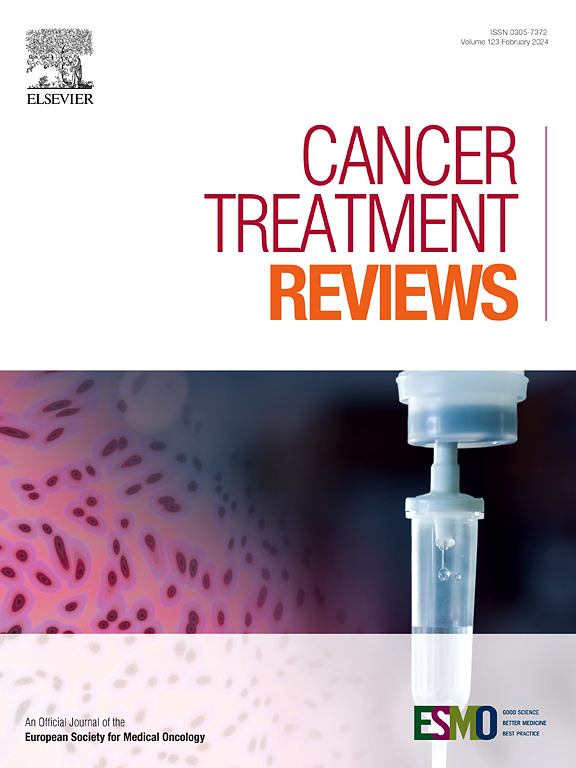Harnessing cytokine immunocomplexes and cytokine fusion proteins for cancer Therapy: Mechanisms and clinical potential
IF 9.6
1区 医学
Q1 ONCOLOGY
引用次数: 0
Abstract
Cytokines are pivotal regulators of cellular functions and immune responses, making them highly promising targets for cancer immunotherapy. Despite their widespread clinical application, the effectiveness of cytokine immunotherapy is often hampered by their pleiotropic effects, short half-lives, uneven biodistribution, and severe side effects at high dosages. Recent advancements in cytokine biology have led to the development of cytokine-antibody immunocomplexes and cytokine fusion proteins, offering a new paradigm in cancer treatments. These innovations foster the ability of cytokines to selectively activate specific cancer-targeting immune cell populations, such as CD8 T cells and NK cells, effectively inhibiting tumour progression. Furthermore, both therapeutic approaches can mitigate systemic toxicities and prolong the biological activity of cytokines in the body. This review delves into the recent advancements of cytokine immunocomplexes and cytokine fusion proteins, with a particular focus on interleukin-2 (IL-2), IL-7 and IL-15, which are in clinical/preclinical development. Moreover, we discuss the therapeutic benefits of these approaches observed in recent preclinical and clinical studies, along with the challenges that must be addressed to fully unlock their potential in cancer immunotherapy.

利用细胞因子免疫复合物和细胞因子融合蛋白治疗癌症:机制和临床潜力
细胞因子是细胞功能和免疫反应的关键调节因子,使其成为癌症免疫治疗的极有希望的靶点。尽管临床应用广泛,但细胞因子免疫治疗的有效性往往受到其多效性、半衰期短、生物分布不均匀以及高剂量时严重副作用的影响。细胞因子生物学的最新进展导致了细胞因子抗体免疫复合物和细胞因子融合蛋白的发展,为癌症治疗提供了新的范例。这些创新促进了细胞因子选择性激活特定癌症靶向免疫细胞群的能力,如CD8 T细胞和NK细胞,有效抑制肿瘤进展。此外,这两种治疗方法都可以减轻全身毒性并延长体内细胞因子的生物活性。本文综述了细胞因子免疫复合物和细胞因子融合蛋白的最新进展,重点介绍了处于临床/临床前开发阶段的白细胞介素-2 (IL-2)、IL-7和IL-15。此外,我们讨论了在最近的临床前和临床研究中观察到的这些方法的治疗益处,以及必须解决的挑战,以充分释放它们在癌症免疫治疗中的潜力。
本文章由计算机程序翻译,如有差异,请以英文原文为准。
求助全文
约1分钟内获得全文
求助全文
来源期刊

Cancer treatment reviews
医学-肿瘤学
CiteScore
21.40
自引率
0.80%
发文量
109
审稿时长
13 days
期刊介绍:
Cancer Treatment Reviews
Journal Overview:
International journal focused on developments in cancer treatment research
Publishes state-of-the-art, authoritative reviews to keep clinicians and researchers informed
Regular Sections in Each Issue:
Comments on Controversy
Tumor Reviews
Anti-tumor Treatments
New Drugs
Complications of Treatment
General and Supportive Care
Laboratory/Clinic Interface
Submission and Editorial System:
Online submission and editorial system for Cancer Treatment Reviews
 求助内容:
求助内容: 应助结果提醒方式:
应助结果提醒方式:


